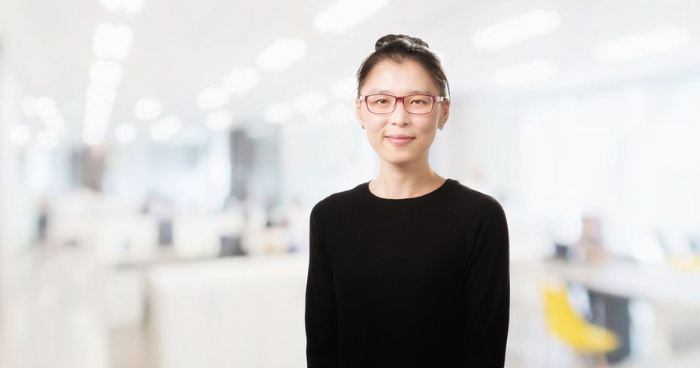Using artificial intelligence (AI) to improve the performance of implantable microphones – an integral component of Cochlear implants – has won support from the Medical Research Future Fund’s REDI Fellowships initiative.
Cochlear implants can provide a sense of sound to people who have severe or profound hearing loss, and Dr Demi Gao will undertake a 12-month Researcher Exchange and Development within Industry (REDI) Fellowship with Cochlear Ltd, the global leader in implantable hearing solutions. She will join the Research and Development team to develop skills in translating research to early-stage product development.
Dr Gao brings a strong background in computing and biology to her fellowship, having completed a Masters in Biology and a PhD in Information Technology. She is a McKenzie Research Fellow based in the University's Department of Biomedical Engineering in the Faculty of Engineering and Information Technology.
The REDI Fellowship Program is part of MTPConnect’s $32 million REDI initiative, funded by the Medical Research Future Fund.
The program provides financial support to companies in the medical technology, biotechnology and pharmaceuticals (MTP) sector to bring researchers, clinicians and MTP professionals in-house for up to 12 months to work on priority medical research projects. Dr Gao is one of 18 recipients to secure the sought-after industry placement.

“This is a fantastic opportunity to use artificial intelligence to benefit people with severe hearing impairment,” Dr Gao said.
“Improving the performance of implanted microphones using AI will accelerate the development of totally implantable cochlear implants. This will significantly minimise the current restrictions caused by the externally worn microphones, such as providing hearing during sleep, showering and many types of vigorous physical activities.”
MTPConnect CEO Stuart Dignam said connecting researchers, clinicians and sector professionals with industry was critical for the growth of Australia’s medical products sector.
“Our congratulations to the 18 new talented fellows who are doing vital work in our sector for patients – and to the companies who are sponsoring them,” Mr Dignam said.
"We are delighted that so many companies, from CSL and Cochlear to Leica Biosystems and SpeeDx, have seized the opportunities provided by our fellowships program, which is driving greater collaboration between industry and research.”
First published on 16 May 2022.
Share this article
Related items
-
Australian Academy of Science medal for geotechnical engineer Dr Samintha Perera
Lecturer in Geotechnical Engineering Dr Samintha Perera has been awarded the Australian Academy of Sciences 2022 Dorothy Hill Medal.
-
New global research alliance between Melbourne and Toronto
A partnership between the University's of Melbourne and Toronto offers new opportunities for collaboration in areas of common scholarly interest.
-
Running clinical trials during a pandemic: PEBBLES call for participants
Researchers need more families for a study testing skin cream designed to reduce the chance of babies developing allergies.